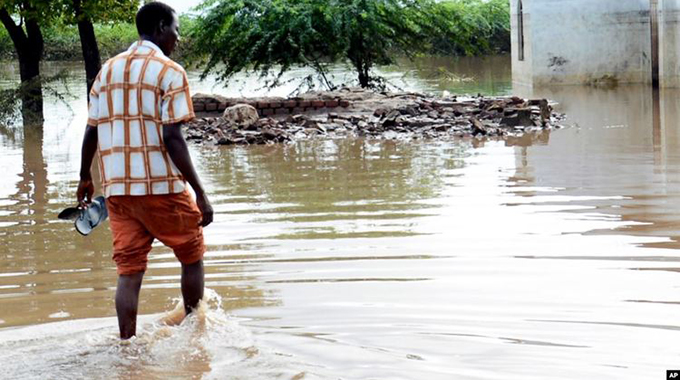Urban flooding threatens to drown Africa’s aspirations

Ruth Butaumocho African Agenda
Flooding in several African countries could result in unprecedented challenges to a continent that is battling a lot of natural disasters owing to the effects of climate change.
Heavy rains recorded in Sudan and Ghana in the last few weeks have resulted in devastating floods and landslides, aggravating an already precarious situation in the continent as countries battle the Covid-19 pandemic.
A few weeks ago, the world woke up to news of floods in Sudan as a result of heavy rains that hit the East African country.
In the case of Sudan, the flooding was the worst in recent history.
The floods, the worst to hit the country since 1988, have so far killed over 100 people and displaced over 500 000, with more expected to be homeless as the rains continue to pound this East African country.
In February, Malawi experienced the same, when heavy rains hit Karonga district, forcing hundreds to flee their homes.
In all the flooding incidents, cities were the worst affected.
Exceptional in their severity and extent, experts in urban planning say people should expect more floods.
There are reports that more cities could find themselves submerged if proper planning of urban centres is not put in place.
Sadly, urban planners are failing to appreciate what may become of African cities if no action is taken to work towards eco-friendly planning in light of the adverse effects of climate change.
Urban flooding has become a major problem in many parts of the world due to its social, economic and environmental impact.
While there could be isolated incidences of flooding in rural areas, the majority of recorded flooding cases in Africa in recent months were in cities and towns, putting under the spotlight local authorities’ failure to plan properly.
Illegal parcelling out of land, change of land usage and haphazard planning of residential and commercial hubs in most African countries are some of the major reasons that have resulted in an upsurge in flooding incidences in recent years.
With thousands of people migrating to cities from rural areas every year in search of better opportunities, there has been an unprecedented demand for land to build houses. Instead of properly planning for such developments, local authorities are hurriedly allocating land on pockets of open spaces which are unsuitable for housing.
Cities are being extended to accommodate this influx and this is being done without any urban strategy or plan in place.
As the country prepares for the onset of the rains, the country’s major cities could find themselves under siege from floods, amid indications that there are a lot of houses built on wetlands.
Some of the houses are built on riverbanks and or near water sources.
Most local authorities, among them Chitungwiza Municipality, had the temerity to parcel out land for houses under sewer and water systems, causing sewage pipes to burst.
When floods hit Harare in 2017, there were power outages and road gridlock. Some buildings, vehicles and personal belongings were damaged in Borrowdale, Kuwadzana and Chitungwiza.
Chitungwiza was the worst affected because it has thousands of houses built on wetlands or on top of drainage pipes.
Such incidences can be avoided once urban planners commit to make cities habitable and eco-friendly through systematic planning.
What is critical is to stop haphazard planning of cities and towns, which is currently the case, amid disturbing reports that land barons, working in cahoots with corrupt councillors are laying claim to State land under the guise of providing cheap and affordable housing.
The Government should move in with haste to stop the wanton distribution of land. Those found on the wrong side of the law should be arrested and face the music.
Already several officials from the Harare City Council were arrested and have since appeared in court to answer to allegations of parcelling out land illegally.
If found guilty, they should be given stiff penalties to discourage would-be offenders from committing similar offences.
Such measures will in the long term save cities from the calamities of natural disasters like flooding.
As part of their efforts in managing the adverse effects of climate change, local authorities should make concerted efforts to redesign ditches, canals and culverts and build new ones in critical locations.
Local authorities that settled people on undesignated land should consider relocating all unplanned developments — such as those that fall within the flood plain — and street networks that cross flood plains, especially in urban cities to safer and better places.
There is also need to regularise and put up proper drainage structures in residential areas that are haphazardly planned to ensure that water movement is not restrained.
In extreme cases, local authorities should be prepared to relocate residents to higher and safe lands to avert major disasters that could result in death and destruction of property.
Sadly, the reason why the country find itself facing challenges like the floods that hit Harare in 2017 is simply because most local authorities are led by corrupt individuals who are prepared to risk the lives of many people for their own benefit.
This is the reason why local authorities have become hubs of corruption, resulting in the near collapse of service delivery and shortage of water being experienced in all the major cities across Zimbabwe.
We therefore call on those entrusted with management of the country’s cities to ensure that they are not submerged.









Comments